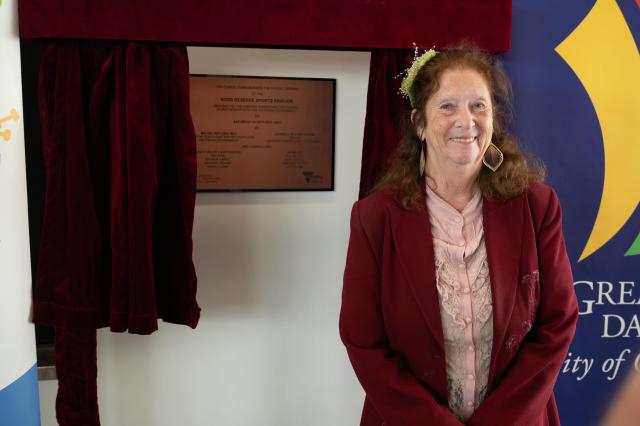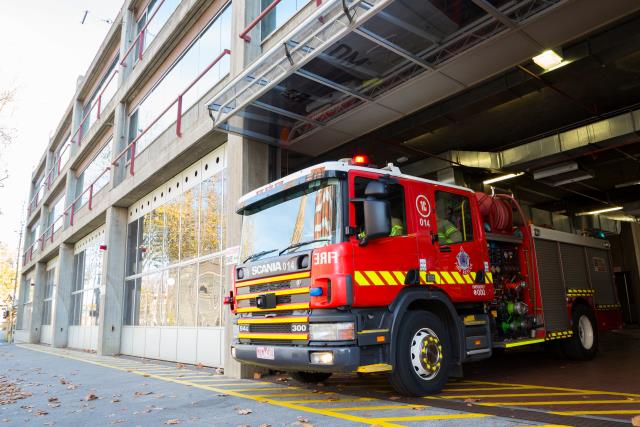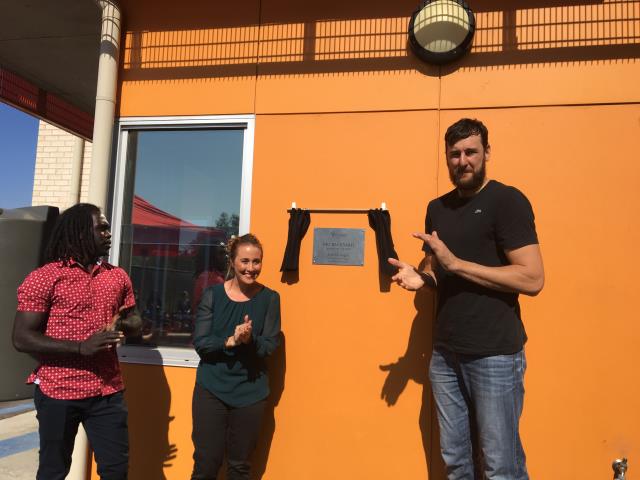By CAMERON LUCADOU-WELLS
CLEAN steam may replace toxic herbicides as Greater Dandenong Council’s preferred weedkiller under a proposal tabled at a council meeting tonight (Monday).
Under the plan tabled by councillor Maria Sampey, the council would do a three-month investigation into the feasibility of using the Australian-invented and owned Weedtechnics system to control weeds in streetscapes, sports grounds, parks and playgrounds.
The system has been used long-term by Fremantle and Leichhardt councils and is being trialed by Maroondah and Yarra councils.
It requires users to blast unwanted plants with a spray of 100C steam.
The system can be run from a trailer or the back of a trailer or utility.
Inventor and chief executive Jeremy Winer said councils had been resisting his sales pitch because they were “budget-orientated”.
He estimates it costs triple the amount of running a herbicide program – about $10 a ratepayer – but becomes cheaper to use after several applications destroy weed seed beds.
“Councils are gradually getting more pressure from residents saying stop spraying around my place, my school and my playground.”
He said his steam weed-killer could wilt plants that had grown resistant to herbicides, but it alone couldn’t kill woody weeds.
“My view is if you don’t need to use a toxic chemical, don’t!” Mr Winer said.
“The proof it works is that Leichhardt council has been using the technology for 10-12 years and we wouldn’t be still in business if it didn’t work.”
Mr Winer said glyphosate-based herbicides widely used by crop farmers, councils and residents could be linked to serious illnesses such as cancer and asthma.
“Herbicide promotion states that it’s safe, which has led to complacency. I’ve seen people applying it not wearing a mask and gloves.
“Councils say the (glyphosate-based herbicides) are the least toxic weed control available.”
Cr Sampey said the change would be for the better for council workers doing weed control as well as users of parks, sports reserves and playgrounds.
“We’ve got kids using our parks. Who knows what will happen to their health down the track?”
Greater Dandenong engineering services director Bruce Rendall said the council uses a variety of herbicides, as well as hand-weeding and mulching, to remove weeds.
“When herbicides are used, (the) council aims to minimise this and also use the lowest possible toxicity capable of doing the job.”
He said when looking at alternatives, the council considers factors such as the cost, effectiveness and risks associated with the technology.
A Leichhardt council spokesman said the council had been using the technology for more than 10 years.
“It is effective for a short term outcome, as it does not kill well buried parts of weeds or any rizomes/tubers. So it needs to be repeated routinely.
“The steam/hot water becomes cool quickly, and also waters the remnant living part of persistent weeds. But many simple weeds are killed outright.”
He said the method’s cost “competes” with other methods depending on how often it was used.
“Overall we use less weedicide, and that is a general positive outcome.
“We do, however, need to apply weedicides to persistent weeds and in locations where the equipment cannot reach.
“There are also significant risks using pressure steam equipment and very hot water in public places, and the heating process uses a lot of fuel, so it is not greenhouse friendly.
“So it has positive and negative features, just like all weed control methods.”






